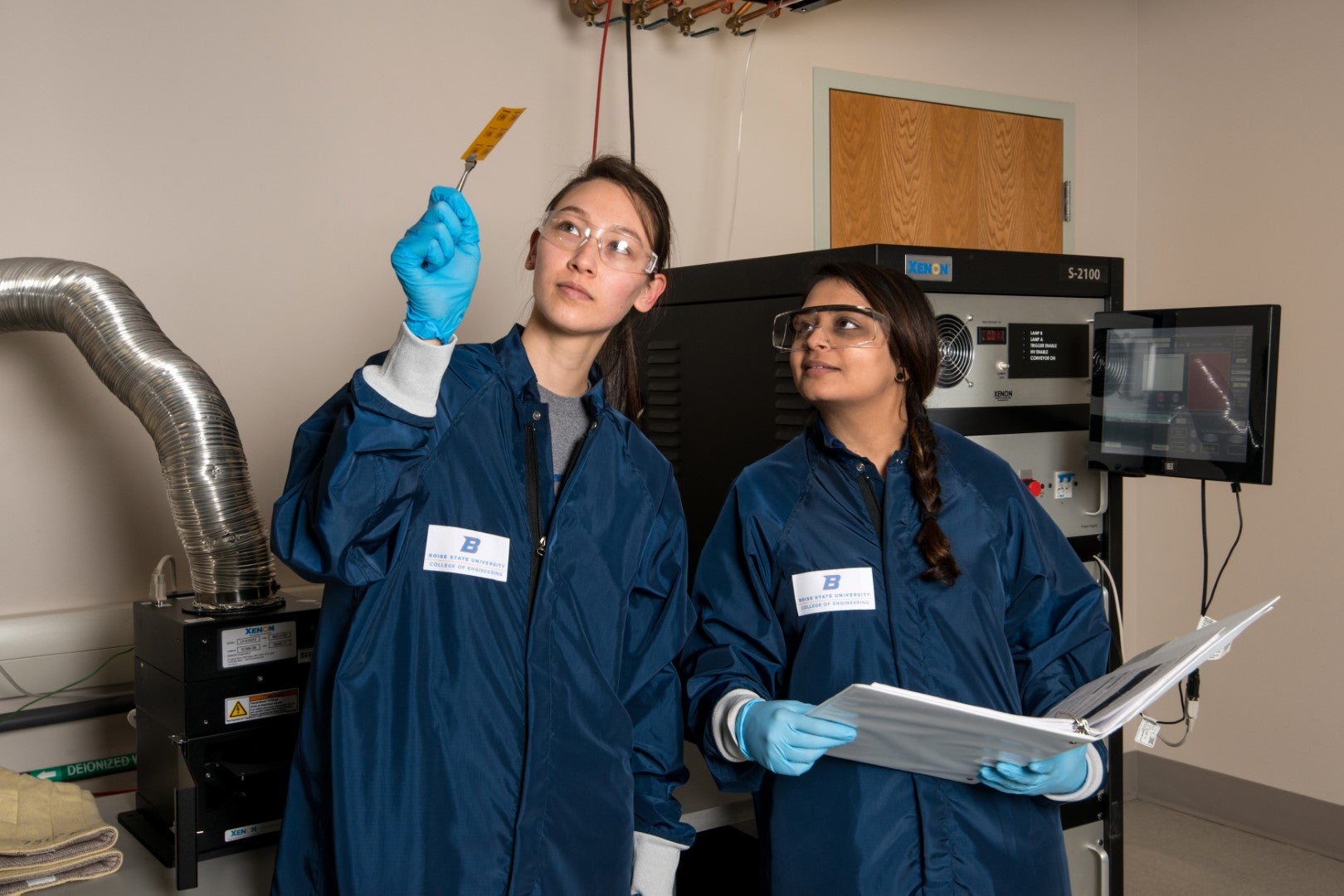
The bipartisan CHIPS and Science Act of 2022 is resulting in significant investments to strengthen American manufacturing of semiconductors and microelectronics. This investment will boost semiconductor research, development, and production, ensuring U.S. leadership in the technology that forms the foundation of everything from automobiles to household appliances to defense systems. Because of this initiative, engineers with an in depth knowledge of semiconductors and microelectronics is needed. The engineering plus degree allows a student to specialize in this field by choosing courses or certificates from the following list. The curriculum can be adapted to the specific interests of the student. Alumni from the engineering plus program are employed as equipment engineers, process engineers and operations engineers in this industry.
Students can choose from the following courses and certificates in this field:
For full course descriptions, prerequisite requirements, certificate requirements see the Undergraduate Catalog
Materials Science and Engineering (MSE)
- MSE 201 Fundamentals of Materials Science and Engineering
- MSE 311 Electrical, Optical and Dielectric Materials
- MSE 315 Materials Processing
- MSE 421 Structural Characterization
- MSE 450 Nanoscale Transport
- MSE 461 Topics in Semiconductor Materials
Engineering Science (ENGR)
- ENGR 360 Engineering Economy
- ENGR 460 Manufacturing Process Control and Improvement
Mechanical and Biomedical Engineering (ME)
- ME 464 Production Engineering
Physics (PHYS)
- PHYS 309/L Introductory Quantum Physics with Applications
- PHYS 415 Solid State Physics
- PHYS 423 Physical Methods of Materials Characterization
Supply Chain Management (SCM)
- SCM 301 Principles of Supply Chain Management
- SCM 366 Supply Chain Analytics
- SCM 380 Quality Management and Lean Process Improvement
Electrical and Computer Engineering (ECE)
- Semiconductor Processing Certificate
- Device Physics Certificate
- Integrated Design Certificate